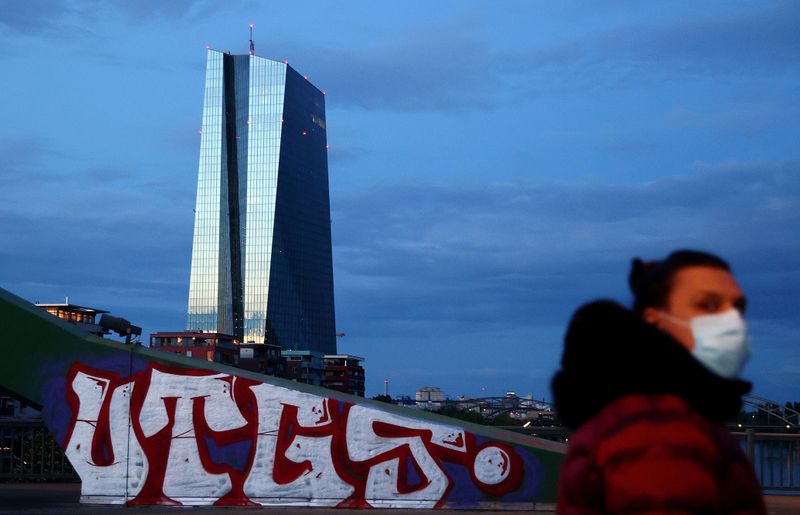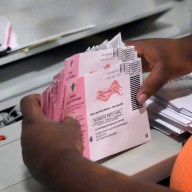FRANKFURT (Reuters) – An expected wave of credit rating cuts for companies as a result of the coronavirus crisis has yet to materialise, data shows, meaning speculation that the European Central Bank will buy bonds of “fallen angels” downgraded to junk may be premature.
The ECB has warned there is “considerable risk of imminent downgrades” for euro zone corporate bonds, many of which could be pushed into the speculative grade or “junk” category.
That would force large investors such as insurance and pension funds, which are largely restricted to investment-grade assets, to sell any bonds they hold, hitting prices and hampering companies’ ability to refinance debt.
Sources have told Reuters ECB staff are considering whether to add recently downgraded bonds to its 1.35 trillion euro ($1.52 trillion) emergency stimulus programme, as the Federal Reserve has done to help support the U.S. economy.
But Refinitiv data compiled by Reuters shows only three companies that qualify for ECB purchases have lost their investment-grade status since April 7 — French auto-maker Renault <RENA.PA>, German airline Lufthansa <LHAG.DE> and Berlin-based real-estate group Ado Properties <ADJ.DE>.
The ECB currently accepts debt downgraded to junk after April 7 as collateral when lending to banks, and that date could mark a cut-off point if it decides to add junk-rated debt to its Corporate Sector Purchase Programme.
Even going back to mid-March, when coronavirus lockdowns began, would add only two issuers, German car-parts maker ZF Friedrichshafen and Italian retailer Esselunga.
“This measure (buying “fallen angel” debt) would be very controversial and only affect a few names to date, which are all protected by the collateral backstop, so I don’t expect it will be introduced,” said Marco Brancolini, a strategist at Nomura.
The ECB does not have to sell downgraded debt it already owns but cannot buy new bonds from issuers that do not have at least one investment-grade rating from S&P Global, Moody’s, Fitch or DBRS.
Adding up all the bonds downgraded since March 22 gives total debt outstanding of 9.275 billion euros ($10.45 billion) — less than 5% of the 212 billion euros’ worth of corporate bonds held by the ECB.
The Fed is already buying junk bonds, with a backstop from the U.S. Treasury which would bear the first losses.
Isabel Schnabel, the ECB board member in charge of the asset purchase programme, has said that mechanism would be difficult to replicate in the 19-country euro zone.
Downgrades could come with a delay and in waves, as happened after the global financial crisis that began in 2007. If that pattern is repeated, the ECB estimates a nominal 110 billion euros of bonds could be downgraded to junk over the next year.
Some, however, see rating agencies as more cautious this time around.
“Only Fitch has been aggressive so far, but it now seems to have slightly softened its reaction function while Moody’s, S&P and DBRS have taken a decidedly wait-and-see approach,” Nomura’s Brancolini said.
(Reporting by Francesco Canepa; Editing by Catherine Evans)



















